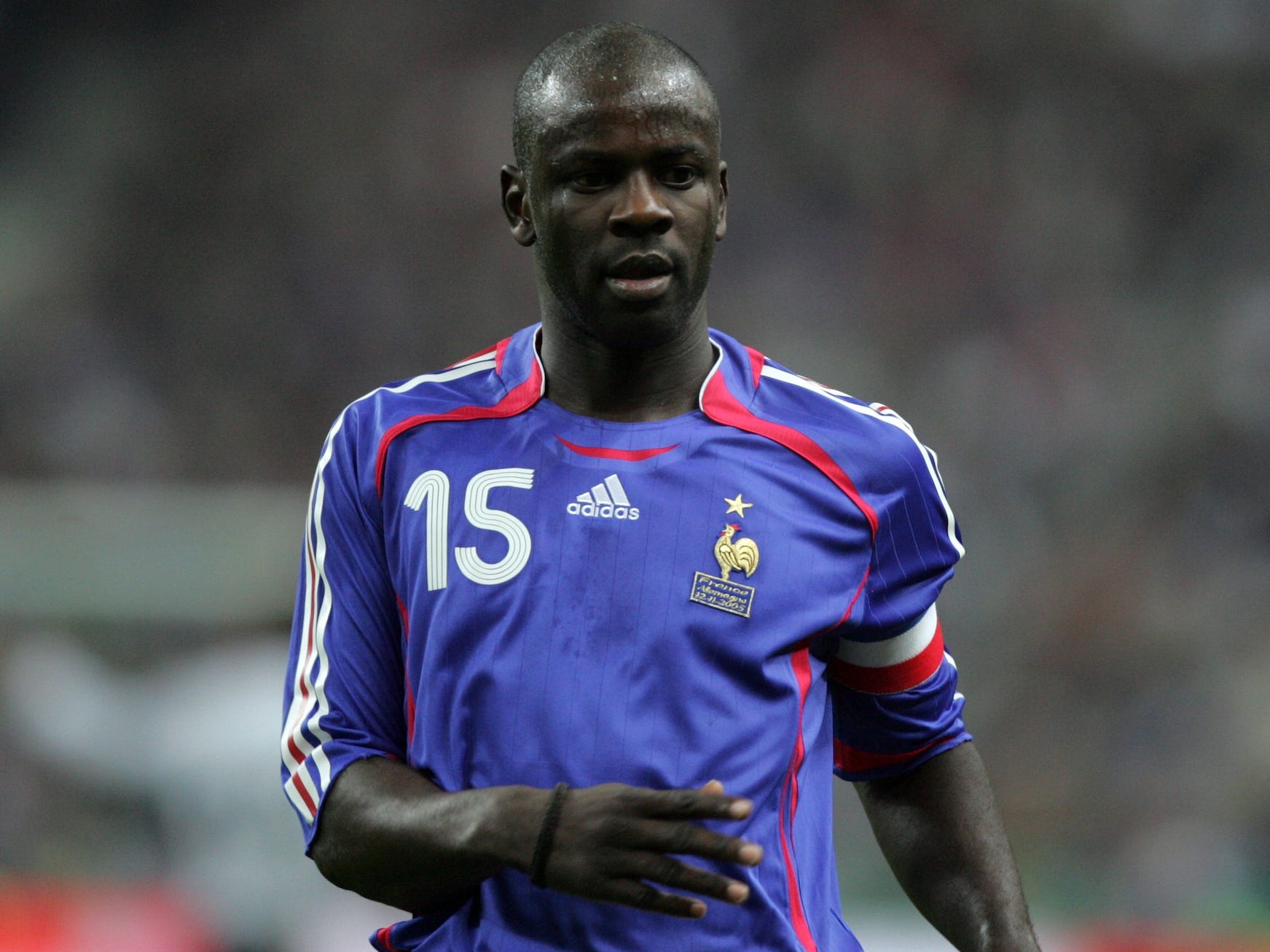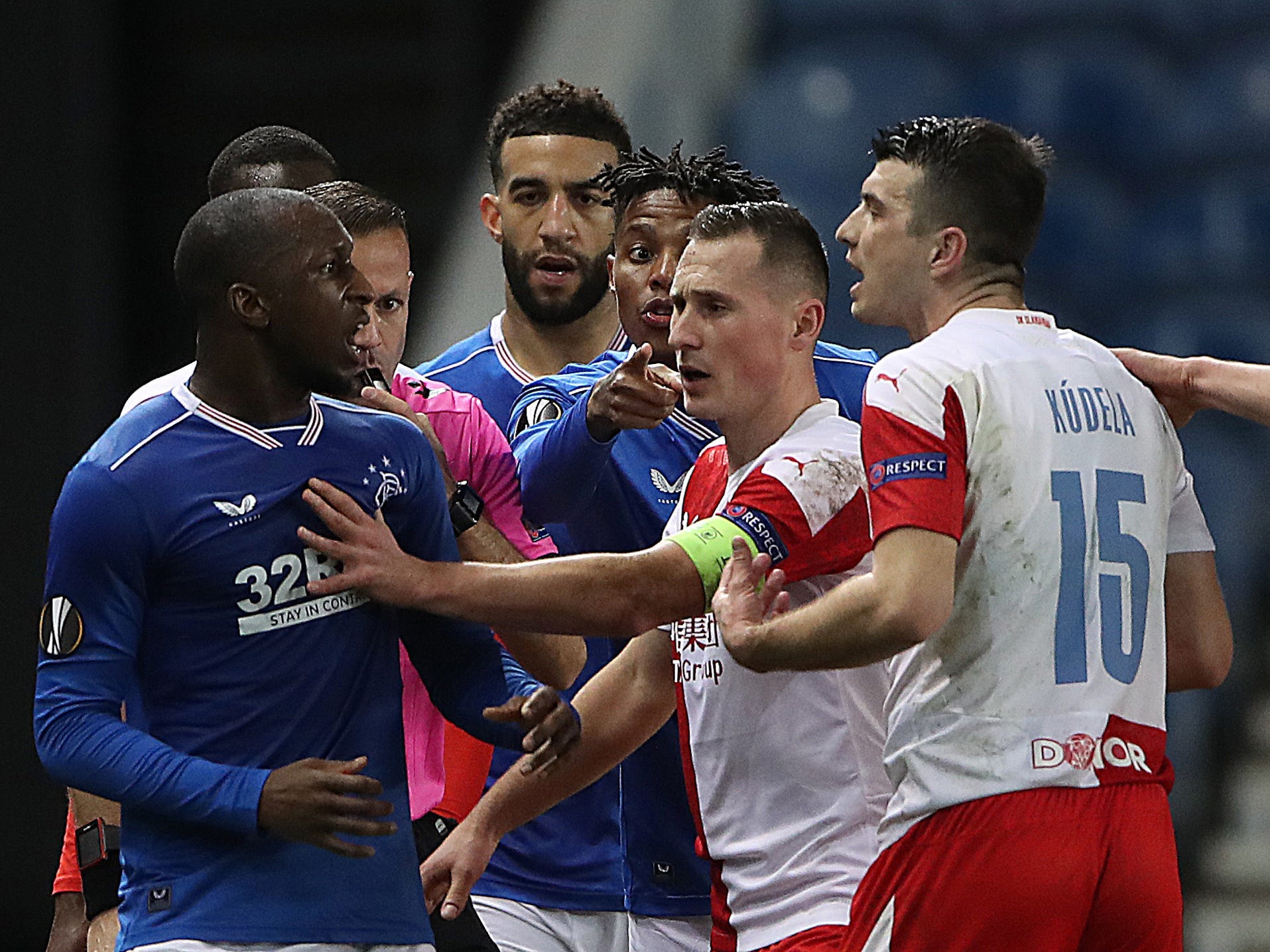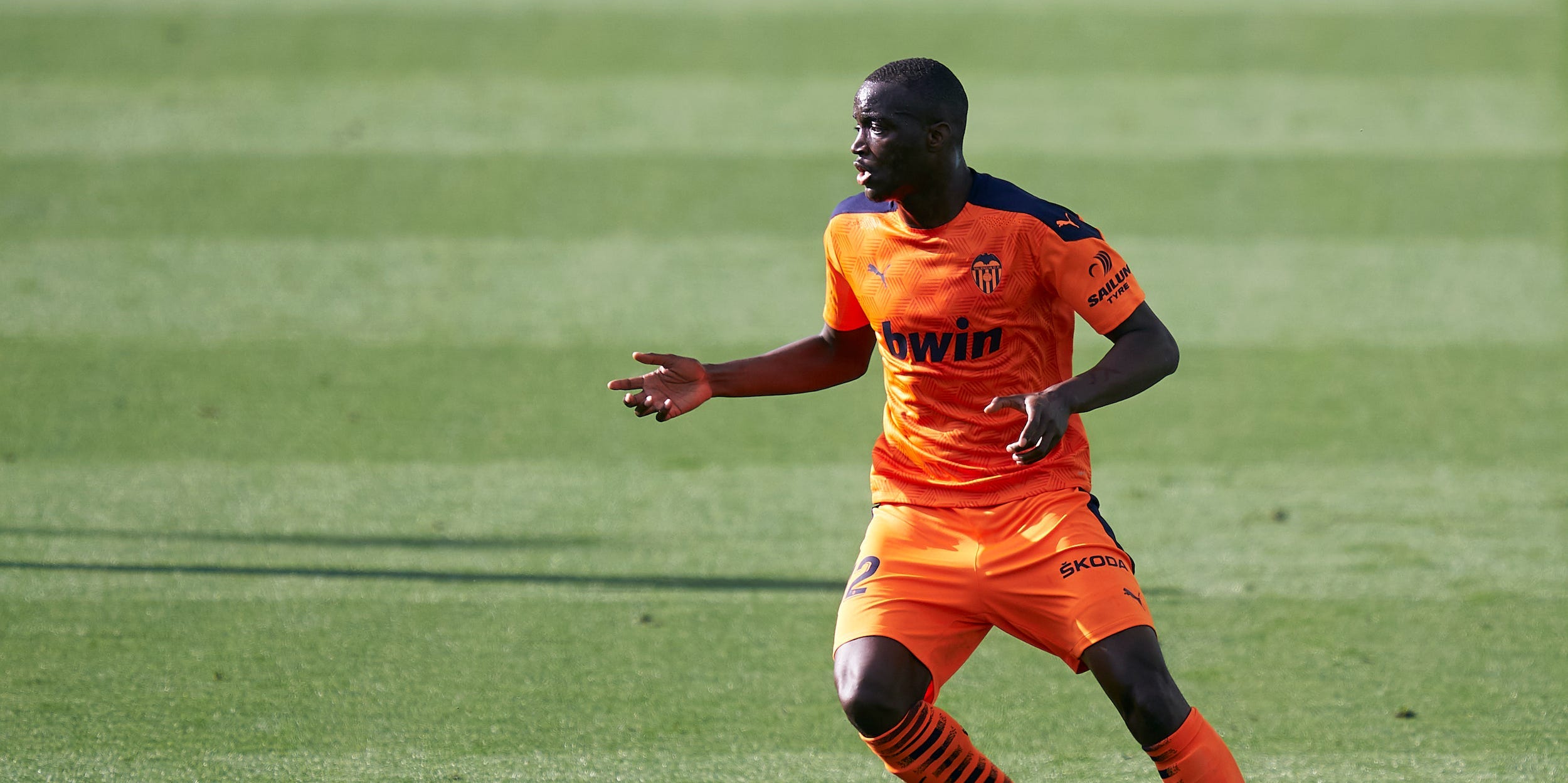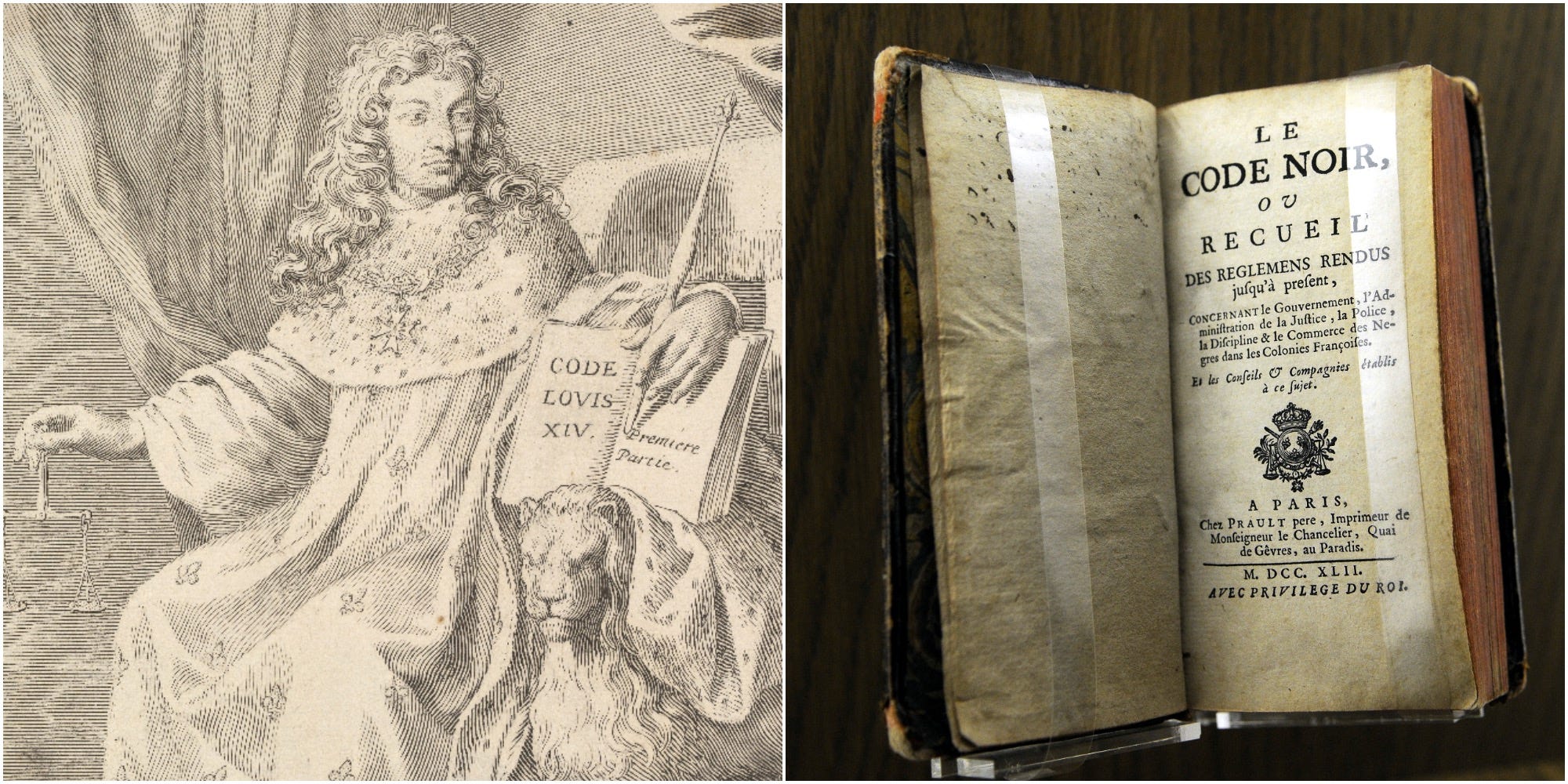
Getty/Regis Duvignau
- World Cup winner Lilian Thuram says soccer's authorities don't protect Black players against racism.
- He told Insider he is now on a mission to start an independent players' organization that will.
- "It would give them a cohesion and it would give them strength," he said in an interview.
- Visit Insider's homepage for more stories.
France's winning team at the 1998 World Cup is one of the greatest in the history of soccer.
Led by captain Didier Deschamps, Les Bleus boasted a roster that included Zinedine Zidane, Patrick Vieira, and a young Thierry Henry.
While all of the above have since put their talents to good use in the world of football management, Lilian Thuram, another of France's biggest stars from the tournament, has instead chosen a different career path post retirement – fighting against racism.
After calling time on a glistening playing career that saw him win titles with AS Monaco, Parma, Juventus, and FC Barcelona in 2008, Thuram first started his own foundation, which aims to educate young people on the roots of racism and explain why it is wrong.
Since then he has curated an exhibition at a museum in Paris examining the use of colonial subjects as attractions in "human zoos" and freak shows, while he has also written no less than eight books.
The latest - entitled "La pensée blanche" ("White Thought" in English) - came out in 2020, and explores the idea that race is a political ideology from which white people benefit.
Now, along with the help of some of the world's top minds at Harvard University and a band of sports stars from the United States, he wants to create an independent players' organization that will lead the charge in eradicating racism from soccer.
"We're looking at a hierarchy in terms of skin color, with Black people at the bottom of the pile," Thuram told Insider. "It's not just something that a single country has got to face, but it is something that goes the whole way around the world."
Racism in soccer is rife
During the 2019/20 season, English soccer's equality and inclusion organization, Kick It Out, reported a shocking 53% increase in reported racial abuse in the professional game.
Elsewhere on the continent, levels of racism led to the issue being described as an "epidemic" by campaigners.
This season, a number of high profile racist incidents have again plagued the game, the most high profile of which came during a match in the Europa League between Rangers and Slavia Prague in March. During the came, Prague's Ondrej Kudela racially abused Rangers defender Glen Kamara.

Getty/Ian MacNicol
Kudela was handed the minimum 10-match ban, while Kamara was also banned for three games for "assaulting" the Czech player in the tunnel after the match.
Thuram told Insider that the slow and tepid response of European soccer's governing body, UEFA, is indicative of a wider problem in the governance of the sport.
He says authorities focus little effort on responding to incidents of racist abuse, or in some cases even ignore them, because they are more concerned with protecting their own, and soccer's, current power structures.
"All of the efforts are being made to protect the economy, to protect the football economy," said Thuram. "'There's no racism in football, everything is okay.' It's just [about] making sure that the business is maintained."
"As a general rule, the institutions do not protect victims of racism," he added.
Thuram's viewpoint was evident in recent weeks after the announcement of the now-dead European Super League. UEFA came out swinging against the Super League with the organization's president Aleksander Ceferin calling it a "spit in the face of all football lovers," and accusing clubs who planned on joining of being "snakes."
This response was almost immediately questioned by some players, who asked why European soccer's governing body has not been so vocal when it comes to tackling racism within the sport.

Mateo Villalba/Quality Sport Images/Getty Images
Speaking to Insider, Thuram went on to reference an incident during a Spanish La Liga game in April, where Cadiz's Juan Cala was alleged to have racially abused Valencia's Mouctar Diakhaby.
The game was temporarily halted after Valencia players walked off. It later resumed - just without Diakhaby.
"When there is a racist incident on the pitch, pretty much what happens most of the time is that the player gets a yellow card, and sometimes he'll get red card," he said.
"And if the player decides that he wants to leave the pitch, pretty much all of the others players will do everything they possibly can to hold him back and keep them on the pitch.
"So what it looks like the person who has been insulted is attempting to walk off but he's basically spoiling the game."
After the incident Cala said Diakhaby had "misunderstood" him - a stance later backed by La Liga. The league said by there was no evidence that Diakhaby had been racially abused, other than the player's own word.
"Instead of defending Diakhaby, La Liga actually takes the line that denounces the player," said Thuram.
"It shows that they most likely have the same level of prejudice."
Black Players For Change
To bypass the lack of action from the powers that be, Thuram now wants to form a Black players' organization that will tackle racial injustice.
One such organization already exists in the United States. It is called "Black Players For Change" and it represents over 170 players, coaches, and staff from the MLS.
"Black Players For Change is committed to tackling the racial injustices that have limited Black people from having an equitable stake in the game of soccer and society," says a statement on the organization's website.
"Among the many goals the organization strives to advance the attention on human right inequalities from protest to programs, partnerships and policies that address systemic racism."
Thuram wants to follow the example of Black Players For Change in Europe.
"I think it will be easier if comes from the US," he said when asked if he believes players from Europe would join such an organization.
"It could be the young players, because those of them who knelt in Europe were those between the ages of between 20 and 22 for instance."
In the English Premier League, all players took the knee before matches to show solidarity with the Black Lives Matter movement following the police murder of George Floyd in May 2020.
In France, Spain, and other European countries, however, many teams and players chose not to use the gesture.
In Germany, only a handful of players chose to do so.
One of those who did was Borussia Monchengladbach forward Marcus Thuram, Lilian's son, who took the knee after scoring a goal in a game versus FC Union Berlin.
-Gladbach (@borussia_en) May 31, 2020
"I think very, very definitely the young players, due to their education, the times that they live in, that the younger players would probably be much, much quicker to adhere to that type of organization," the former France international added.
"And they could make it known on social media, they're all on social media. They all have a massive following. Let it be known that they're part and parcel of this by using communication, and they would actually set in motion something that would be extremely symbolic."
To get the organization off the ground, Thuram hopes to use the platform of Harvard University's Global Sport Initiative, while he also hopes that Amnesty International, the world's leading human rights organization, can be involved.
"It would be fantastic to have a meeting like that, and get like minded people together and get like minded players together," he said.
"It would give them a cohesion and it would give them strength. It would show their revolt and by revolt, what I mean is you bring it out into the public domain and talk about it, you name it, you give examples you talk about.
"I think it's a brilliant idea. It would give them all courage, the fact that they would all be in together."
Thuram admits it won't be easy
One of biggest road blocks Thuram envisages for the project are people, and organizations, who oppose the idea because they see it as "anti-white."
He believes that will be a particularly pertinent problem in France due to his home country's history of colonialism.
"What's happening at the moment in France, there is a whole social debate going on," he said. "What the kernel of the issue is that there are people who believe victims of racism should not be allowed to meet within a group that is purely made of people who have experienced racism.
"The comparisons given by those who disagree with this, is that you're not going to invite a non-alcoholic to a Alcoholic's Anonymous meeting.
"But the overall consensus, at least for the time being in France, seems to be that this should not be allowed, that it's anti white to have these non-mixed meetings where people talk about being victims of racism."
He added: "This is not new, this whole strategy of trying to keep people from meeting together, this goes back to the curtain wall, which is the "Black Code" [Le Code Noir], which if my memory is correct, was instigated against slaves back in the 17th century."
"Le Code Noir" was a decree passed by the French King Louis XIV in 1685 defining the conditions of slavery in the French colonial empire.
"I think it was 1685, and that was in place until 1858," continued Thuram. "And basically, one of the tenants one of the laws of this code was to forbid Black people to come together, because by doing that, they threatened the status quo.
"So by putting in the same type of of laws in place nowadays, it is a means of maintaining the status quo here in France."

Getty/Heritage Images/Alain Denantes
Another of Thuram's roadblocks he says is the media.
"Within the media, you have the same inherent prejudice," he said. "So if you start off a movement like this thinking you're going to get their benediction, it's not going to happen."
A 2015 study from St. Catherine University stated that Black men are more likely to be "criminalized and represented as violent in the media" as opposed to white men.
In 2020, The New York Times reported that Black soccer players are four times more likely than their white counterparts to be discussed in terms of their strength, and seven times more likely to be discussed in terms of their speed. White players, on the other hand, were more likely to be praised for their work ethic and intelligence.
On top of that, there is also little diversity in the mass media. The American Society of News Editors (ASNE) reported in 2016 that minorities (defined as Black, Asian American, Hispanic, and Native American) made up 17% percent of the workforce across the country's newsrooms.
"For a lot of the mainstream media, they they cultivate the same hierarchy, they're a means of ensuring that the institutions remain in place and that the status quo remains.
"But that doesn't mean that you don't go ahead."
This interview was facilitated by Harvard University's Global Sport Initiative. Thuram's comments were made through a translator. As such, some comments have been lightly edited for clarity.